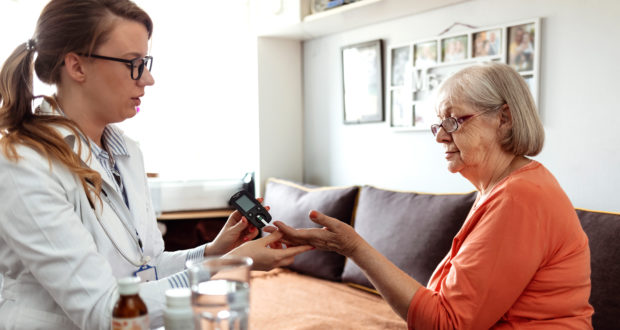GPs will receive double the yearly payment to treat aged care residents as part of a government move to improve the health of older Australians.
GPs will be incentivised to make more visits to people living in residential aged care as part of a $42.8 million investment which was announced as part of the budget. It will come into force from July 1.
“This funding boost provides an additional 120,000 GP services to senior Australians living in aged care facilities,” Health and aged care Minister Greg Hunt said over the weekend.
“It is part of our $17.7 billion response to the Aged Care Royal Commission. We recognise the importance of improving health care for people in residential aged care and this is essential in ensuring senior Australians are treated with respect, care and dignity.”
The maximum yearly payment that a GP can receive will double to $10,000 through the introduction of additional qualifying service levels and service incentive payments.
Service incentive payments will be given to GPs based on the number of eligible items delivered to patients in a financial year.
Tier 1a): 60-99 services for $2,000;
Tier 1b): 100-139 services for $2,500;
Tier 2a): 140-179 services for $2,500; and
Tier 2b): 180+ services for $3,000.
Minister for Senior Australians and Aged Care Services, Richard Colbeck, said the changes will improve the quality of frontline care in the sector and give residents more face-to-face time with GPs, while residents will also benefit by not having to travel for appointments.
“The Government is committed to supporting the delivery of high quality and safe residential aged care including regular access to GPs who can monitor and manage health and wellbeing," he said.
First payments are expected in the November 2021 quarter for services provided by GPs from 1 July 2021.
“In December last year, Health Minister Greg Hunt promised that 2021 would be the year of the GP,” said The Royal Australian College of General Practitioners President Dr Karen Price after the budget announcement in May.
“On the aged care front, the new funding measures are welcome and overdue. General practice has been drawing attention to shortfalls in the aged care system for many years and the doubling of the incentive for GPs who provide care to people in aged care facilities is an important first step."
Recent analysis by the Australian Medical Association (AMA) said that Australia could be saving $21 billion by eliminating avoidable hospital admissions from aged care homes and older people in the community.
AMA president Dr Omar Khorshid said that these hospital admissions, presentations and stays could be prevented through better provision of primary care in aged care settings, and that means investing in GPs and registered nurses.
The peak asked to see Medicare rebates increased for GPs that attend nursing homes by 50 per cent to "compensate for the additional time and complexity involved in comparison to a GP consultation in their own rooms". They estimate that Government investment of $643 million over four years to 2024-25 ($145 million in 2021-22) is needed to increase these MBS rebates.
“Not enough nurses and limited access to GPs are behind the frequent transfer of older people in nursing homes to hospitals, often resulting in unnecessary prolonged stays," Khorshid said.
Do you have an idea for a story?Email [email protected]
 Aged Care Insite Australia's number one aged care news source
Aged Care Insite Australia's number one aged care news source

